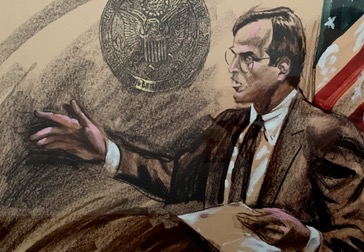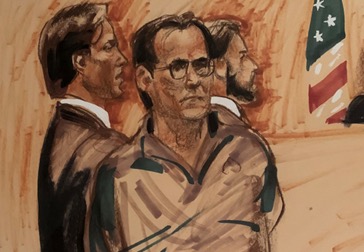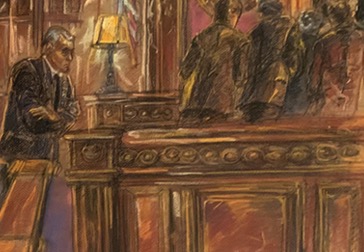Obama Bans Solitary Confinement of Juveniles in Federal Prisons
President Obama on Monday banned the practice of holding juveniles in solitary confinement in federal prisons, saying it could lead to “devastating, lasting psychological consequences.” The move, which Mr. Obama outlined in an op-ed article published by The Washington Post on Monday night, adds the weight of the federal government to a growing movement among state prison administrators, who have begun sharply limiting or ending the use of solitary confinement. Mr. Obama said federal prisons would no longer use solitary confinement for juveniles or for inmates serving time for low-level infractions. He said the change, along with expanded mental health treatment, would affect as many as 10,000 inmates in the federal system, about a tenth of those being held in solitary confinement in the United States, including in state prisons. “Research suggests that solitary confinement has the potential to lead to devastating, lasting psychological consequences,” Mr. Obama wrote. “It has been linked to depression, alienation, withdrawal, a reduced ability to interact with others and the potential for violent behavior. Some studies indicate that it can worsen existing mental illnesses and even trigger new ones.”
Mr. Obama’s decision follows similar actions in some states, as leaders rethink the practice for the first time in generations. California settled a landmark lawsuit last year by agreeing to an overhaul of its prison system that included strict limits on the prolonged isolation of inmates. Colorado and New Mexico have reduced the number of people in solitary confinement. In September, the Association of State Correctional Administrators called on its members to limit or even end the use of solitary confinement for extended periods. The president took action after a six-month evaluation of the practice by Attorney General Loretta E. Lynch, who examined more broadly whether it was overused in prisons across the United States. Mr. Obama said in the article that he was adopting the recommendations of the Justice Department review. The changes come as Mr. Obama has grown more aggressive in seeking to overhaul the criminal justice system, especially in places where the system has confronted questions of bias against blacks and other minorities. Last summer, in a speech in Philadelphia, Mr. Obama called for a bipartisan effort to fix what he called “a broken system” of criminal justice. He said the nation’s prisons were locking up too many Americans for too long, and he expressed particular concern about the system’s bias against young black and Hispanic men. “We can’t close our eyes anymore,” Mr. Obama said. “And the good news — and this is truly good news — is that good people of all political persuasions are starting to think we need to do something about this.” Since taking office, and especially in the last year, as his time in office winds down, Mr. Obama has commuted the sentences of dozens of largely nonviolent offenders, even as the Justice Department examines thousands more cases of inmates who have requested clemency. He is also pushing for a broader, bipartisan overhaul of sentencing rules in Congress this year. In the Senate, a bipartisan group of lawmakers is seeking passage of a wide- ranging bill that would reduce minimum sentences for nonviolent drug crimes, potentially affecting as many as 6,500 people now in prison who could petition for reduced sentences.
The legislation would ban solitary confinement for juveniles in almost all state and federal prisons. There are relatively few juveniles in the federal prison system. In the op-ed published on Monday, Mr. Obama said the practice of holding prisoners in cells with no human contact for extended periods was counterproductive in many cases. “How can we subject prisoners to unnecessary solitary confinement, knowing its effects, and then expect them to return to our communities as whole people?” Mr. Obama asked. “It doesn’t make us safer. It’s an affront to our common humanity.” In the Justice Department report, Ms. Lynch recommended what the report called “guiding principles” for all correctional systems. Among them: that inmates should be housed in the least restrictive setting necessary to ensure safety, and that placement in restrictive housing should be regularly reviewed. At facilities run by the federal Bureau of Prisons, the report said that inmates with serious mental illnesses would be increasingly moved to “secure mental health units” instead of solitary confinement. And it urged that inmates who face legitimate threats to their lives be put in a “protective custody” that is less restrictive than solitary confinement. “In those cases, the practice should be limited, applied with constraints and used only as a measure of last resort,” Mr. Obama wrote. The president cited the case of a 16-year-old boy from the Bronx who was accused of stealing a backpack in 2010. Mr. Obama said the boy, Kalief Browder, was sent to Rikers Island to wait for his trial and was put in solitary confinement for nearly two years. Mr. Obama said Mr. Browder was released in 2013 without having stood trial, but committed suicide after struggling to deal with what Mr. Obama said was the “trauma of being locked up alone for 23 hours a day.” “He was just 22 years old,” Mr. Obama wrote.
The president concluded his article by quoting Pope Francis, who said that “society can only benefit from the rehabilitation of those convicted of crimes.” Mr. Obama added that changing the criminal justice system would “leave our children with a country that is safer, stronger and worthy of our highest ideals.”
By MICHAEL D. SHEAR JAN. 25, 2016, New York Times








